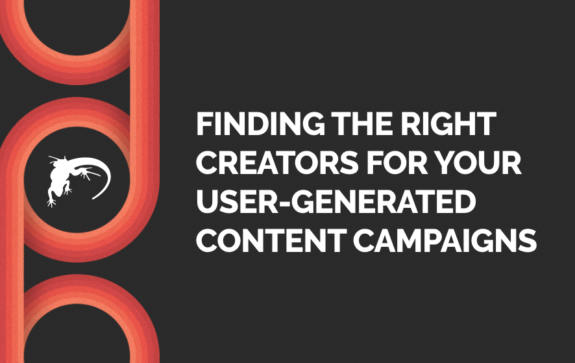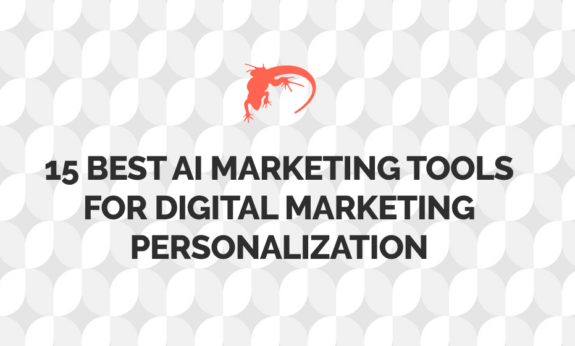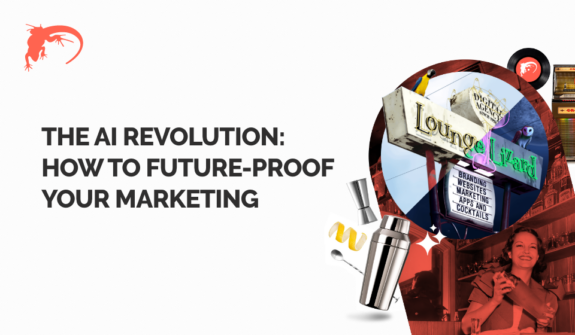Is SEO Dead? No, But It’s Changing—Algorithm Optimization is the Future

There are a lot of digital marketing experts and business owners asking, “Is SEO dead?”
The answer is No, but it’s changing!
Search engine optimization (SEO) is not dead. It’s evolving to adapt to technological advancements, such as artificial intelligence (AI) and machine learning.
SEO continues to drive organic traffic, improve online exposure, and boost Search Engine Results Page (SERP) rankings. However, outdated SEO tactics can actively kill your rankings.
To succeed with SEO today, you need to consider these things:
- Understand what SEO strategies are working and avoid the ones that aren’t.
- Constantly monitor the SEO situation and adapt to changes.
- Make your SEO strategy more sophisticated as new opportunities present themselves.
- Focus on providing the best possible user experience.
You should also consider:
- Technology is changing (and you had better keep up because it won’t wait for you).
- Adapting is vital (search engine algorithm modifications are released many times a year, so stay updated).
- User behavior continues to evolve as AI moves into the realm of search engines.
Generative AI is Changing the Search Game
Many businesses have relied on SERP Ranking to attract potential customers to their websites. This meant producing content based on keyword research and then optimizing it for SEO with meta tags and links. With a great content strategy and a little luck, your blog or article will rank on the first page of Google and attract organic traffic…and customers.
Then came Generative AI. What’s that you ask?
Generative AI refers to types of artificial intelligence models that are capable of generating new content or data that wasn’t part of their learning models or training set. This can encompass various types of outputs, including but not limited to text, images, music, and videos.
Explaining Generative AI’s Impact on Google Search Results
A great example of Generative AI is the new Google search feature in Chrome that uses Generative AI to give the user a complete answer, even allowing you to ask follow-up questions and prompts you with follow-up suggestions. Google is offering ‘SGE – Generative AI’ through the Search Labs project on Chrome (experimentally for now).
In Google’s rush to launch its Generative AI search engine, which was in response to Chat GPT and Microsoft’s partnership on Bing and is having a severe impact on Google’s stock price due to the apparent threat to ad income, they have created a ‘zero-click content’ environment changing SEO’s very nature.
A zero-click content search refers to a query where the user does not click on any search results after entering their query. Instead, the user gets the information they need directly from the search engine’s results page without visiting any external websites. This often happens when the search engine displays a featured snippet, knowledge panel, or other direct answer to the user’s query right on the results page, but Generative AI has taken this to a whole new level.
How Generative AI is Changing Search on a Granular Level
First, we must understand the possibilities this opens up, and then we can start strategizing how best to maximize SEO. Let’s look at some of the ways search changes.
Personalized Content Creation
Generative AI can produce custom-tailored content for users based on their search histories and preferences. For instance, it creates personalized articles, summaries, or images that match the user’s unique requirements.
Data Augmentation for Better Search Results
One of the challenges for search engine algorithm optimization is the lack of diverse training data. Generative AI can create synthetic data, expanding the variety and quantity of data points, which in turn can be used to train search algorithms more effectively.
Enhanced Visual Searches
When users search using images rather than text, generative models can assist by modifying or enhancing the input image to match potential results or by generating similar images to expand the search scope.
Improving Search Suggestions
By predicting what a user might be interested in based on limited input (e.g., the first few characters of a search term), generative models can help in producing more relevant autocomplete suggestions.
Generating Descriptive Metadata
For web pages or content that lack sufficient metadata, generative AI could synthesize descriptions or tags, improving indexing and search result relevance.
Semantic Search Improvements
Generative models can be used to understand the context around user queries, enabling search engines to retrieve results not just based on exact keyword matches but also on the context, intent, and semantics.
Ads and Marketing Optimization
Search engines that serve ads can use generative AI to design personalized advertisements based on user search behavior, ensuring that ads are more relevant and engaging.
Query Expansion and Paraphrasing
Generative models can help rephrase or expand user queries, enabling the search engine to capture a broader set of relevant results.
Visual Storytelling and Summarization
For users who want a visual or summarized version of search results, generative AI can combine text and imagery to provide concise and engaging summaries.
While the potential applications are vast, it’s also crucial to note the challenges. Generative models can sometimes produce inaccurate or misleading content, and their decisions can be more challenging to interpret compared to traditional algorithms. Nonetheless, as the technology matures, its integration into search engines is likely to bring about enhanced user experiences while continuing to redefine SEO.
Adapting to SEO That Focuses on AI and Uses Algorithm Optimization
In the fast-paced world of digital marketing, SEO is evolving at lightning speed. Traditional SEO practices are no longer sufficient to get ahead.
As the digital landscape shifts, so must our SEO strategies. Let’s dive into the latest advancements and ensure your online visibility doesn’t suffer because of this fast-moving shift in the industry.
1. Understanding AI Algorithms: Why Your Old Tactics Are Falling Short
The landscape of SEO is shifting from traditional keyword-based strategies to understanding and adapting to AI algorithms. Google and other search companies employ intricate AI models to improve user search experience. Gone are the days where keyword stuffing would propel you to the top — today, we need to learn more about the dynamics of AI algorithms and why they’re central to your company’s future SEO success.
2. Natural Language Processing and Machine Learning: Beyond Simple Keywords
Are you frustrated with your well-researched keywords not delivering the expected results?
The fault might lie in something other than your keyword research. Search engines now utilize Natural Language Processing (NLP) and Machine Learning (ML) to comprehend the context and intent behind search queries. These technologies redefine the SEO game and require quality content that uses natural language flow rather than keyword-first copy.
3. Semantic Search: Bridging the Gap Between User Intent and Content
Have you ever wondered why your content fails to rank? It’s likely due to the shift towards semantic search. Semantic search refers to search techniques that consider the context, intent, and meaning behind the query rather than just matching keywords or phrases.
Traditional search engines focused primarily on matching keywords from search queries to keywords in documents. Semantic search goes beyond this by trying to understand the user’s intent and the contextual meaning of the terms they use.
Here are some key concepts with semantic search:
- User Intent — Instead of just matching keywords, semantic search tries to understand the user’s intent. For example, if someone searches for “apple,” are they referring to the fruit or the tech company? The context and other words in the query can help determine this.
- Entity Recognition — Semantic search recognizes entities in the content. Entities can be people, places, things, or concepts. By understanding entities, the search engine can provide more relevant results.
- Relationships — Semantic search understands the relationships between different entities. For instance, it knows that Paris is the capital of France or that apple (the fruit) can be related to recipes, nutrition, or farming.
- Knowledge Graphs — Major search engines like Google use knowledge graphs, which are vast networks of entities and their interrelationships. When you search for a prominent person or place, the search engine might provide a quick summary or facts about that entity derived from their knowledge graph.
- Latent Semantic Indexing (LSI) — This involves identifying relationship patterns between terms and concepts contained in unstructured text. LSI is used to discover synonyms and the context around words, which helps deliver more accurate search results.
- Natural Language Processing (NLP) — NLP helps computers understand and interpret human language. With the advancements in NLP, search engines can understand queries phrased in natural language and even handle more complex queries.
4. Keyword Research in the Age of AI: Not What It Used to Be
The rules have changed, and so have the tools. Traditional keyword research methods are becoming obsolete. Uncover the new practices of keyword research that align with AI-driven search engines and ensure AI technologies that will enhance your results. SemRush, Ubersuggest, and Chat-GPT are all tools that can be used in AI-optimized SEO.
5. Optimizing for Intent: The New SEO Gold Standard
It’s not just about what users search for but the intent behind the search queries. Generative AI can discover intent and will then use it to rank results.
6. Utilizing Schema Markup: Making Content Machine-Readable
With over 99K searches per second, you can see how quality content might get lost in the vast digital space. Schema markup helps make your content machine-readable, boosting its chances of being recognized and ranked. Learn the how-tos and benefits of integrating schema markup into your SEO strategy.
7. Using Technical SEO to Boost AI Search Engine Authority
Your website’s structure and technical health will still play a paramount role in search engine ranking. Understanding the finer points of technical SEO that cater to AI-driven search engines and fortify your website’s position in search results, including site speed, mobile responsiveness, and rendering performance, will continue to be essential for providing a great user experience – a top-ranking factor for Google.
A terrific user experience can significantly impact your SEO. After all, what good is reaching the top of search results if users bounce off your site in seconds? Delve into the vital components of user experience, from site speed to mobile optimization, and learn how to keep users engaged.
To Sum Up
So, is SEO dead? No!
As AI becomes increasingly central to search engines and ranking, it’s imperative to adapt and refine your SEO strategies. Staying proctive and informed is the key to ensuring your content remains visible and relevant in this ever-changing digital landscape. Consider engaging a digital marketing agency, like Lounge Lizard Worldwide, which has Marketing Mixologists and SEO experts that can help you and your company embrace these changes and gear up for the future of SEO.
Contact Lounge Lizard to learn more about Generative AI, SEO, and building a successful SEO strategy.






